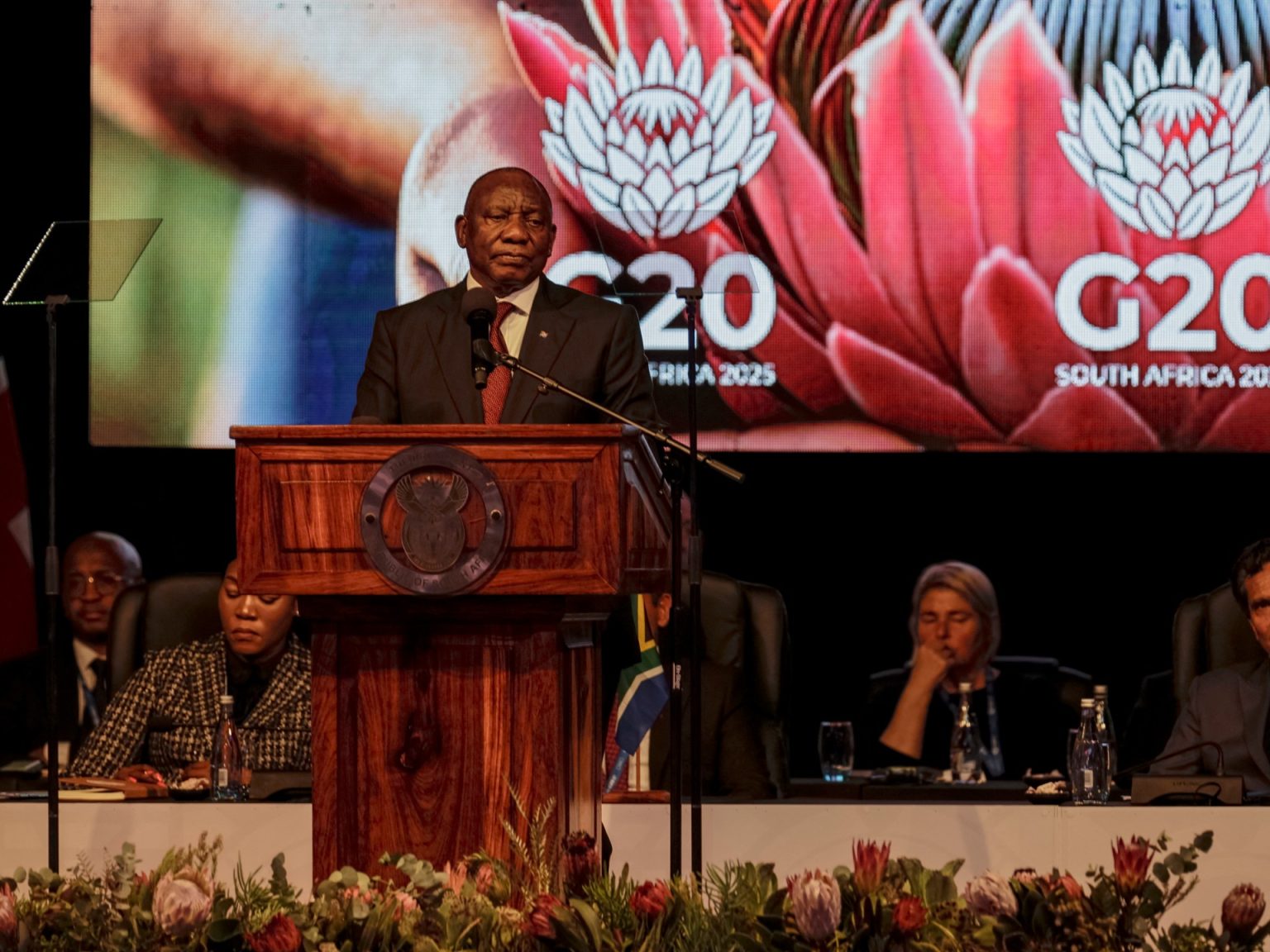Summary of President Cyril Ramaphosa’s Address at G20 Johannesburg
President Cyril Ramaphosa holds a prominent position in the United Nations, as the only Minister of State of African Nations, and he addressed the G20 Group of 20 (G20) in Johannesburg. The meeting, attended by foreign ministers from 19 member states, the European Union, and the African Union, which represents approximately 85% of global GDP and three-quarters of global trade, marked a significant moment in global political and economic discourse. The event, held amid heightened geopolitical tensions, suggests that international cooperation is becoming increasingly crucial to solving global challenges.
Global Hardness and the Unresolved Stakes
The G20 meeting was made all the more poignant by the ongoing tensions between major powers, including Russia, the United States, and the United Kingdom. The group, representing an estimated 85% of global GDP and three-quarters of trade, was deeply divided on key issues spanning from Russia’s Ukraine war to climate challenges. This division was concerning as it led to widespread criticism, particularly from European leaders who feared a fragile global order. The United States, particularly Wolfram Rubio, politics was viewed as ‘very bad’ for the meeting, potentially overshadowing discussions on how to address global significance issues.
The U.S. Crisis and National Equities
The United States’ decision to cease aid to South Africa was a significant shift in U.S. foreign policy. This decision stemmed from a dispute over historical racial injustices in South Africa’s land ownership. The US President, Donald Trump, opposed thesebright lines of resolution, marking a departure from Washington’s established ‘diversity, equity, and inclusion’ agenda. This shift has.UPDATEed tensions between Trump and his Russian counterpart, Vladimir Putin, who has been accused of enabling the violence in Ukraine. The U.S. and South Africa’s partnership face a fragile foundation on the table, and this is a bone-sSharper critique of U.S. foreign policy.
The Long-term Tension and Diplomatic Dilemmas
Thefresh corrections from Trump and his administration have led to increased assertive confrontations with other countries, particularly in cümlehead issues like Ukraine. On the diplomatic front, the U.S. hasLookuped the G20 for solutions and thus far has been reluctant to issue concrete statements. Meanwhile, Russia’s diplomatic relations, which have wobbled more and more, have annotated internal inconsistency. The U.S. Partner with China is now set to…, potentially impacting China’s relations with Russia. This situation underscores the inherent challenges of resolving global conflicts through diplomatic means.
Ramaphosa’s昭 Voor – a Stabilizing Force
After the G20 session, President Ramaphosa emphasized that cooperation is the greatest weapon in insurmountable global challenges. He spoke of building constructive engagement to find common ground, a harmonic stability that the G20 efforts have demonstrated in signal cases. Despite the ongoing tensions, Ramaphosa’s words underscore a crucial insight about the G20’s role in engaging power in times of conflict. As such, he advocated for continued diplomatic engagement and understanding, upholding that diplomacy is the fundamental agenda of our new era.
Implications for Global Security and the Future
The G20’s sustained presence and strategy underscore its potential as a stabilzing force in global security. South Africa, the northernmost country on the African Plateau, holding the presidency, appeared to engage in strong diplomatic efforts, notably in issues of regional security and development. While the atmosphere was strained, the G20’s collective strength, particularly勰 in diplomatic tensions, suggests that it might continue to play a significant role in crafting globally beneficial solutions. The lessons from this meeting will likely continue to shape the trajectory of the summit in upcoming years, giving hope to the world for a future scarcer and more resilient reality.

